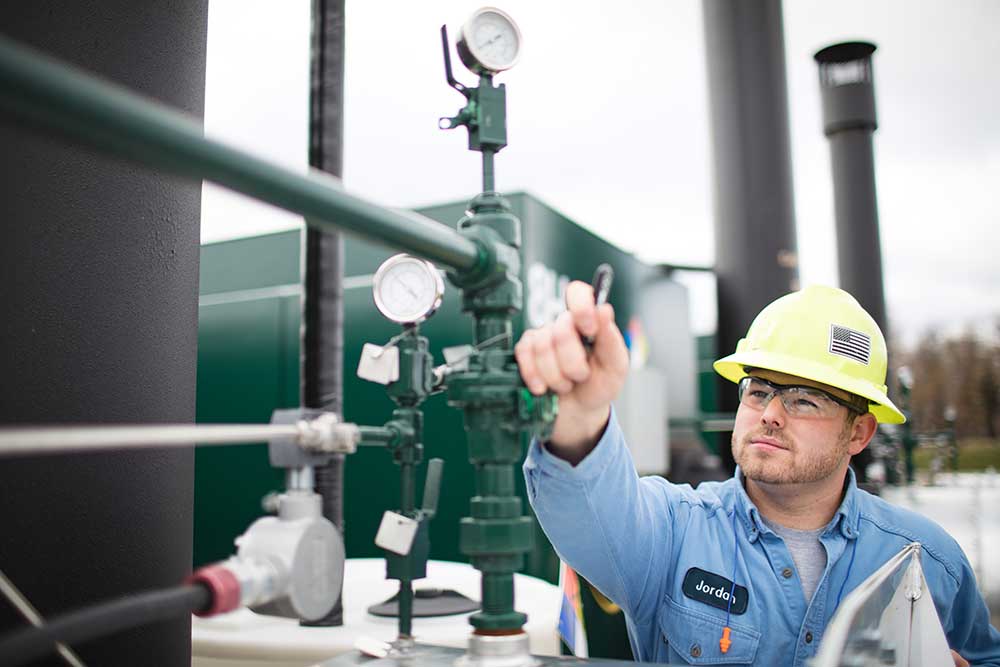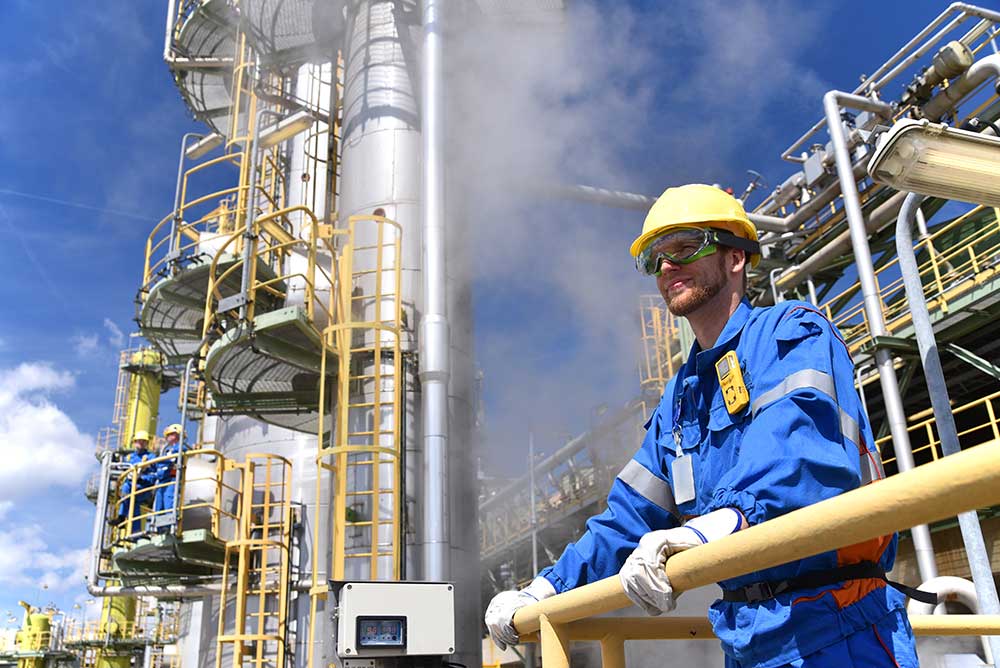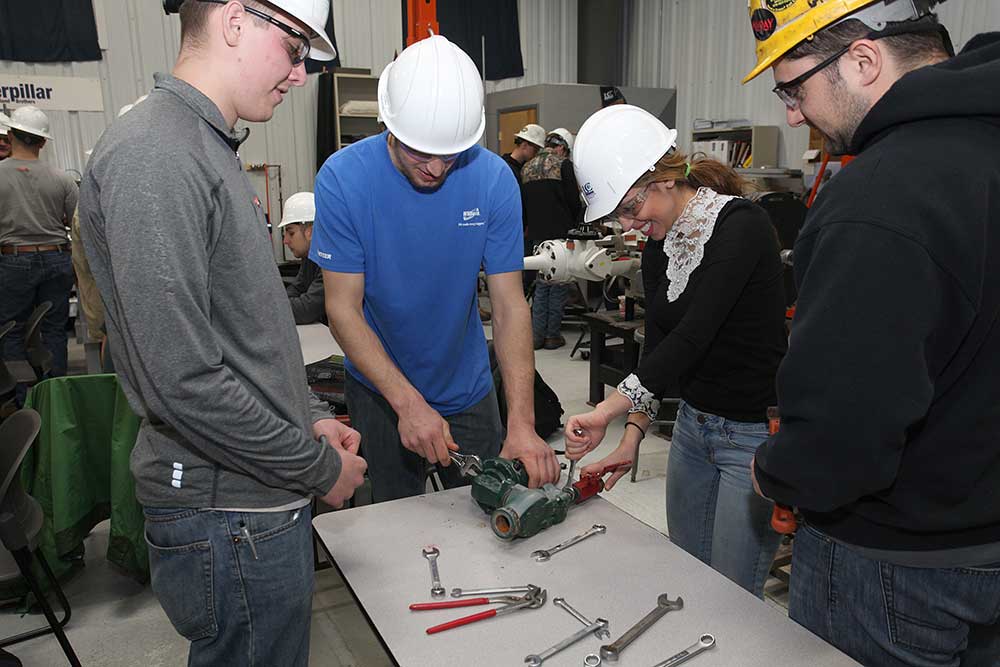Petroleum & Natural Gas Technology
At A Glance
Two-year program that prepares students for careers in the production of petroleum and natural gas.
Students participate in an industry-based 160-hour internships to get hands-on learning.
Graduates will continue to see employment opportunities as 50% of the current workforce is expected to retire in the next five to seven years.
93% of Lackawanna graduates get hired by large petroleum and gas companies.
Available in Tunkhannock at the College’s School of Petroleum & Natural Gas; at the Hazleton, Lake Region-Hawley, Sunbury and Towanda centers.
Welcome to Petroleum & Natural Gas Business Administration-Associate Degree

Want to be on the production side of the Petroleum & Natural Gas industry? Then Lackawanna College’s Petroleum & Natural Gas Technology Associate degree may be for you. The program prepares students to be operations technicians that will be responsible for the production and processing of oil and gas.
Your Career Starts Here
The U.S. could see up to 50% of the oil and natural gas industry’s skilled workers retire within the next five to seven years. Our associate degree program answers the industry’s need for a trained workforce in all sectors of the petroleum and natural gas industry.
The median wage for geological and petroleum technicians is $51,130. Pennsylvania has the sixth-highest level of employment in the United States for these occupations.
Graduates of Lackawanna College’s associate program can work as:
- Lease Operators
- Field Technicians
- Operations Techs in a Midstream Environment

More About the Program
The Petroleum and Natural Gas Technology associate degree prepares students to be operations technicians that will be responsible for the production and processing of oil and gas. Students will learn concepts in oil and gas discovery, drilling, production, pipelining, processing and marketing plus OSHA safety requirements and computer skills. Instruction will include hands-on teaching with oil and gas field equipment and a summer internship with four weeks of actual field experience with an oil and gas producing company. Additionally, students will be able to:
- Explain the fundamental principles of the technology in the petroleum and natural gas upstream, midstream and downstream sectors including development, economics, equipment, systems, instrumentation, operations and the various associated scientific principles and processes.
- Demonstrate Industrial Safety and OSHA regulations knowledge, skills and resources to be able to work safely in the petroleum and natural gas industry while understanding the overall aspects of safety, health and environment.
- Demonstrate understanding of petroleum and natural gas production, field handling, completion, workover and well service concepts and processes.
- Demonstrate knowledge of reciprocating gas compression and pipelining technology.
- Apply leadership, ethics and regulations principles to the petroleum & natural gas industry.
- Participate in an industry internship of 160 certified hours.

The Course Work
Lackawanna’s two-year program is two years and includes an industry-based 160-hour internship for additional hands-on learning opportunities. The degree program opens up opportunities for careers in states including Pennsylvania, Texas, Ohio, West Virginia and New Jersey.
Areas of study that students typically encounter in associate petroleum and natural gas technology degree programs include:
- Field Handling and Processing
- Petroleum and Gas Well Production
- Drilling and Completions
- Compression Technology
- Natural Gas Technology
- Pipelining
- Safety Certifications and Industry Standards
